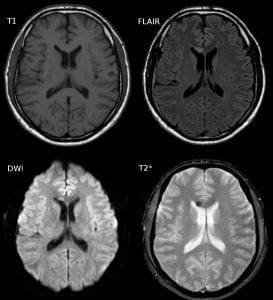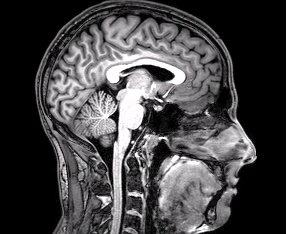Most mild TBIs fly under the radar or symptoms are mistaken for something else.
Nearly three million Americans experience a traumatic brain injury every year, but the number may be much greater as the bulk of mild traumatic brain injuries (mTBIs) go either undiagnosed or misdiagnosed.
However, recent research suggests that even mTBIs, when left untreated, may affect how the brain works later down the road, upping the injured person’s risk of Parkinson’s disease and dementia. Unfortunately, many people sustain mTBIs and do not even know it.
What is a Mild TBI?
A mild traumatic brain injury, commonly referred to as a concussion, is an injury to the head that may affect awareness for a few minutes. Most mTBIs are caused by direct blows to the head or a violent and sudden forward-backward motion known as whiplash.
Common scenarios that may lead to an mTBI include falling off bicycles, being involved in motor vehicle accidents, slipping from the stairs, and experiencing physical violence, especially in domestic settings. The shock waves from explosive blasts and full-contact sports may also cause this type of brain injury.
The age groups with the highest risk of mTBIs are small children and people aged 75 or older. The latter sustain such injuries mainly due to age-related falls.
TBIs may qualify as a catastrophic injury, according to this St. Paul catastrophic injury attorney, which entitles victims to extra compensation, and so do some mTBIs, especially if they are accompanied by long-lasting symptoms (more on that in a bit).
Medical doctors classify a mild TBI as a brain injury that falls between 13 and 15 on the Glasgow Coma Scale (GCS), a standard used to measure a patient’s level of awareness and alertness after a head injury. A solid 15 on the scale means that the patient is fully conscious. A score of three means that the patient is already in a deep coma. A score between nine and 12 signals a moderate TBI, which requires immediate medical attention.

Another telltale sign of the severity of the brain damage is the duration of the memory loss and the state of confusion, also known as post-traumatic amnesia (PTA), immediately after the injury. In some mild TBIs, the injured person may lose consciousness for half an hour or less and/or may experience PTA for less than a day.
Signs You May Have Experienced an mTBI
Most mild TBIs fly under the radar or symptoms are mistaken for something else. Chances are that you may have developed a mild TBI if:
- You’ve had a recent fall.
- You were involved in a traffic collision.
- You were injured while playing sports.
- You were the victim of a natural disaster.
- Domestic abuse is an issue in your household.
It is estimated that every 13 seconds a person suffers a concussion and that 80% of all TBIs are mild TBIs. With most mTBIs, people recover on their own within a few days or weeks. However, some mTBIs may spur post-concussive symptoms, which may drag on for months or years under the name of the Post Concussions Syndrome (PCS).
The main symptoms of PCS include:
- Sleep issues
- Tiredness
- Recurring headaches
- Loss of taste or smell
- Loss of appetite
- Low or no sex drive
- Dizziness
- Nausea
- Vision issues
- Limb tremor
- Partial hearing loss
- Ringing in the ears (tinnitus)
- Temporary memory loss
- Memory issues
- Confusion
- Slow thinking
- Inability to find words easily
- Inability to focus
- Being easily distracted.
PCS may also come with serious changes in the person’s personality and behavior, such as:
- Mood swings
- Impatience
- Anger management issues
- Avoidant behavior
- Apathy
- Depression
- Feelings of guilt or shame
- Feelings of hopelessness, etc.
Unfortunately, many people who experience these symptoms after a head injury take them as they come, without realizing that the changes might be linked to a traumatic brain injury. If you experience any of these symptoms after a blow or jolt to the head, seek medical advice at once. Also, keep in mind that many post-concussive symptoms may take weeks and even months to fully develop.


Join the conversation!